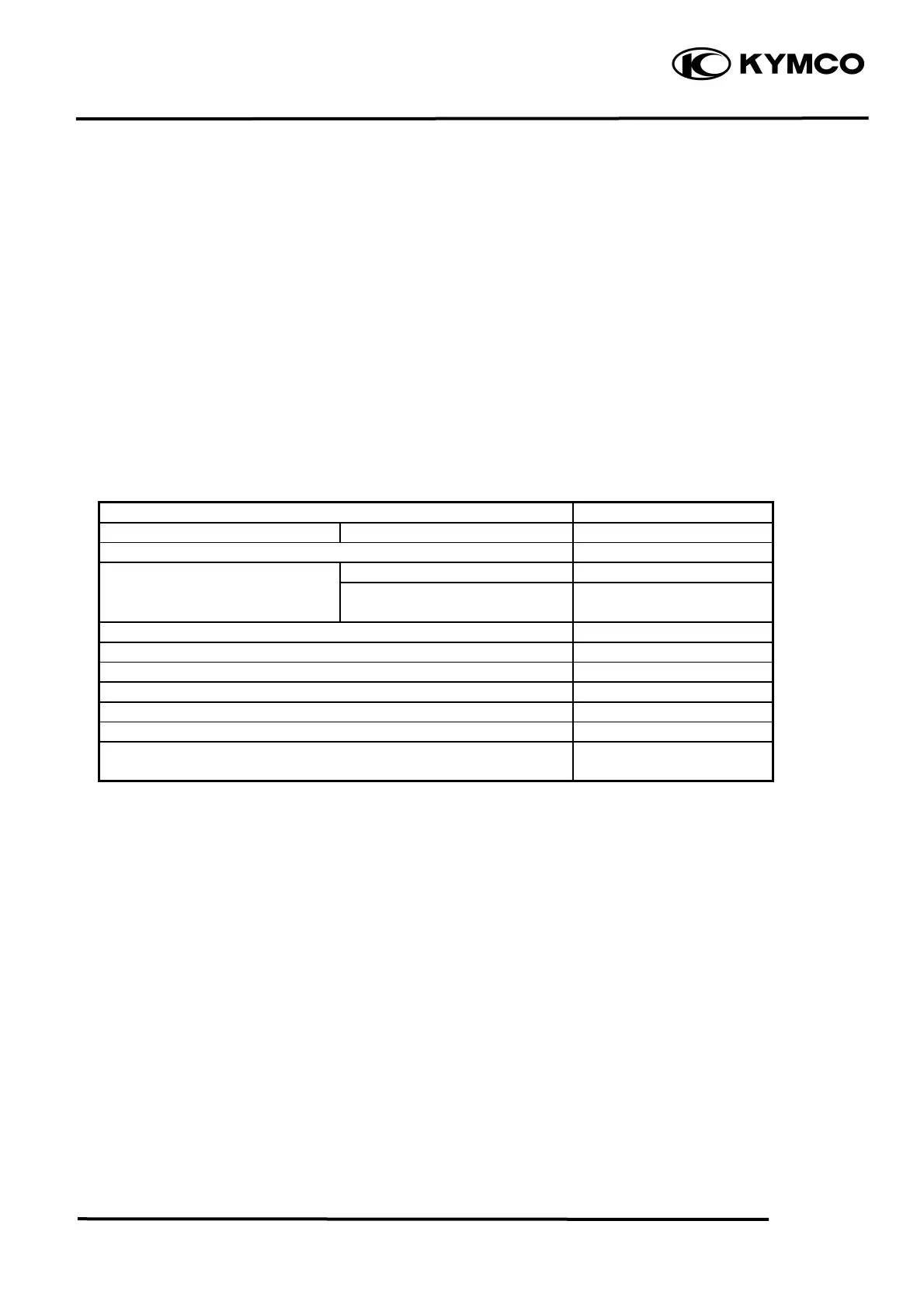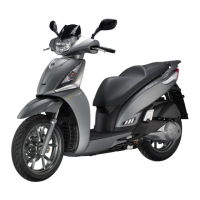17. IGNITION SYSTEM
17-2
G-DINK 300i
SERVICE INFORMATION
GENERAL INSTRUCTIONS
• Some electrical components may be damaged if terminals or connectors are connected or
disconnected while the ignition switch is “ON” and current is present.
• When servicing the ignition system, always follow the steps in the troubleshooting on page 17-2.
•
The ignition timing cannot be adjusted since the ignition control module is already adjusted in
factory.
• The ignition control module or ECU maybe damaged if dropped or the connector is disconnected
when the key is “ ON ”, the excessive voltage may damage the ignition control module or
ECU. Always turn off the ignition switch before servicing.
• A faulty ignition system is often related to poor connections. Check those connections before
proceeding.
• Make sure the battery is adequately charged. Using the starter motor with weak battery results in
a slower engine cranking speed as well as no spark at the spark plug.
• Use a spark plug of the correct heat range. Using spark plug with an incorrect heat range can
damage the engine.
SPECIFICATIONS
Item Standard
Spark plug Standard type DPR6EA
Spark plug gap 0.6 ~ 0.7 mm
Primary coil 3.57~4.83Ω
Inductive Ignition Coil
Secondary coil without plug
cap
10.42~14.49 KΩ
Throttle Position Sensor 3500~6500Ω
Fuel Pump 1.9 Ω about
Fuel Injector 11.7±0.6Ω
Water Temperature Sensor 2.076KΩ±10% (25℃)
Oxygen Sensor ( engine warming condition ) 6.7Ω~9.5Ω
Crank Position Sensor 115Ω±15Ω
Tilt Switch
0.4V~1.4V(normal)
3.7V~4.4V (fall down)
TROUBLESHOOTING
No peak voltage
• Short circuit in engine stop switch or ignition switch wire.
• Faulty engine stop switch or ignition switch.
• Loose or poorly connected ignition control module connectors.
• Open circuit or poor connection in ground wire of the ignition control module.
• Faulty crank position sensor.
• Faulty ignition control module.
Peak voltage is normal, but no spark jumps at the plug
• Faulty spark plug or leaking ignition coil secondary current.
• Faulty ignition coil.
